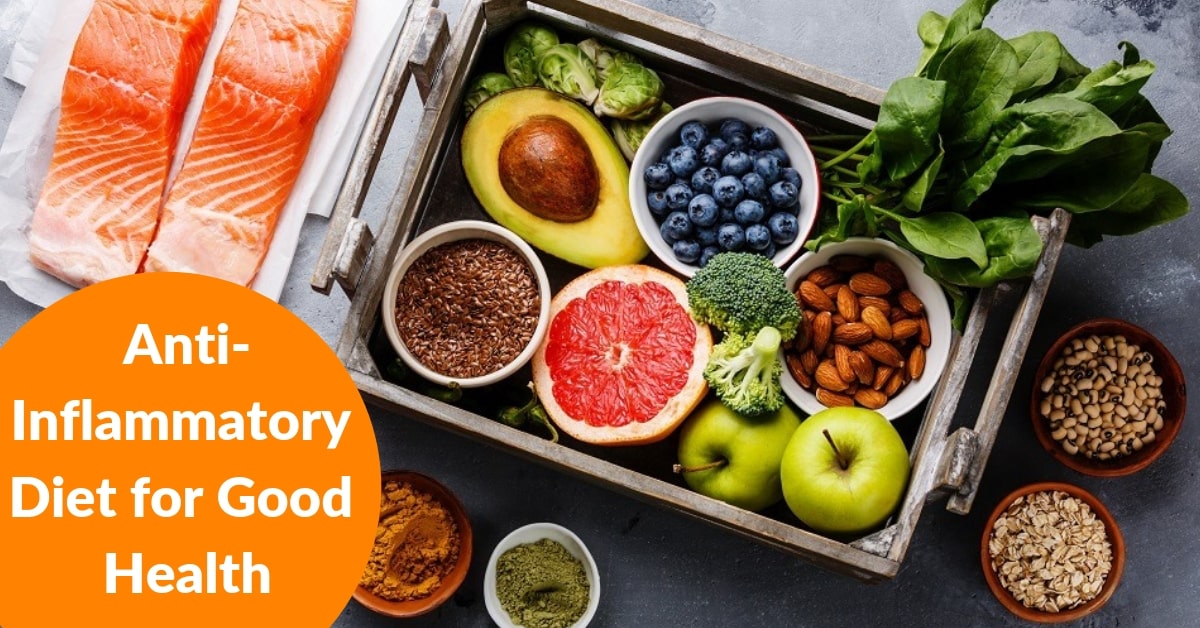What is an inflammation?
Inflammation is defined as the body’s immune system’s response to any stimulus. It can be in response to certain common injuries like the burning of your finger, or falling off a bicycle, after which the affected area becomes red and warm. It is basically a localized response to any injury, characterized by ‘increased blood flow, capillary dilation, leukocyte infiltration, and production of chemical mediators.
However, when inflammation becomes chronic (longstanding), the ability of the immune system to fight with other bugs and pathogens gets compromised.
Chronic inflammation can have serious detrimental effects on your health like the impaired ability to think, depletion of nutrients in the body, reduced metabolism, which can also lead to emotional imbalance.
What are the harmful effects of inflammation on our health?
Asthma, heart diseases, Alzheimer’s disease, obesity, allergies, Type-2 diabetes, arthritis, depression, some types of cancer, and some other conditions can be caused by or made worse due to inflammation. As we age, our bodies become more susceptible to the damages caused by inflammation.
In today’s life, most people are exposed to extreme stress and environmental toxins like endocrine-disrupting and cancer-causing chemicals present in everything from food to water and household cleaners. And our body always responds defensively.
To fight inflammation, we need to help our bodies to cope with this continuous attack of immune triggers. Eating an anti-inflammatory diet is one of the best ways to help your body combat inflammation.
What is an Anti-inflammatory diet?
An anti-inflammatory diet is a diet which is rich in fruits and vegetables (leafy greens), legumes, nuts and seeds, and whole grains, as well as foods containing omega-3 fatty acids.
To consume an anti-inflammatory diet, try including foods that have the following four properties: antioxidant activity, detoxifying activity, nutrient density, and hormone-regulating activity.
An anti-inflammatory diet should also contain large amounts of antioxidants, which are reactive molecules in food that help in reducing the number of free radicals in the body. Free radicals are molecules that may damage cells and increase the risk of certain diseases.
A good anti-inflammatory diet should include foods like:
- Dark leafy greens, including kale and spinach
- Blueberries, blackberries, and cherries
- Dark red grapes
- Nutrition-dense vegetables, such as broccoli and cauliflower
- Beans and lentils
- Green tea
- Red wine, in moderation
- Avocado and coconut
- Olives
- Extra virgin olive oil
- Walnuts, pistachios, pine nuts, and almonds
- Cold water fish, including salmon and sardines
- Turmeric and cinnamon
- Dark chocolate
- Spices and herbs
Fruits and veggies: Choose a variety of fruits in different colors. Studies have shown that vitamin K-rich green leaves like spinach and kale help in curbing inflammation, so does broccoli and cabbage.
Beans: They’re high in fiber, plus they are rich in antioxidants and other anti-inflammatory substances.
Whole grains: Whole-wheat bread, Oatmeal, Jowar, Bajra, brown rice and other unrefined grains are high in fiber which helps in reducing inflammation.
Nuts: They contain healthy kind of fats that help curb inflammation ( Avocado and olive oil are also good sources of Omega-3 fats). Try sticking to just a handful of nuts per day; otherwise, the fat and calories can add up.
Fish: Make it a part of your diet at least twice a week. Fishes like Salmon, tuna, and sardines have a high content of omega-3 fatty acids, which fights inflammation.
Herbs and spices: Apart from the flavor, they add antioxidants to your food. A spice like Turmeric has a strong antioxidant called curcumin. Garlic reduces the body’s ability to make substances that boost inflammation.
Which foods should we avoid?
The most important things to cut down are- chemically processed foods, refined sugars (Sugar causes the body to release inflammatory chemicals called cytokines), beverages and red or processed meat.
Following are the foods that can be avoided in an anti-inflammatory diet:
- Processed meats
- Sugary drinks
- Trans fats, found in fried foods
- White bread
- White pasta
- Snack foods, such as chips and crackers
- Desserts, such as cookies, cake, candy, and ice cream
- Excess alcohol
- Carbohydrate-rich foods like rice, potatoes, noodles etc
Recently it has been found out that vegetables from the nightshade family can also trigger inflammatory responses. Examples are tomatoes, eggplants, peppers, and potatoes. Although due to limited evidence it is better to follow elimination for 2-3 weeks and then check the response.
In addition to an anti-inflammatory diet, it is also important to:
- Drink more water
- Stay within the daily calorie requirements
- Exercise regularly
- Sleep for 7-8 hrs.
- Choosing organic and properly washing your produce before eating. This also helps in reducing your exposure to toxic pesticides.
About The Author
Ms. Ratika Vinchurkar– MSc, Food & Nutrition, RxDx.
For booking, appointment call us today!!!
If you have further questions then please contact us on.




